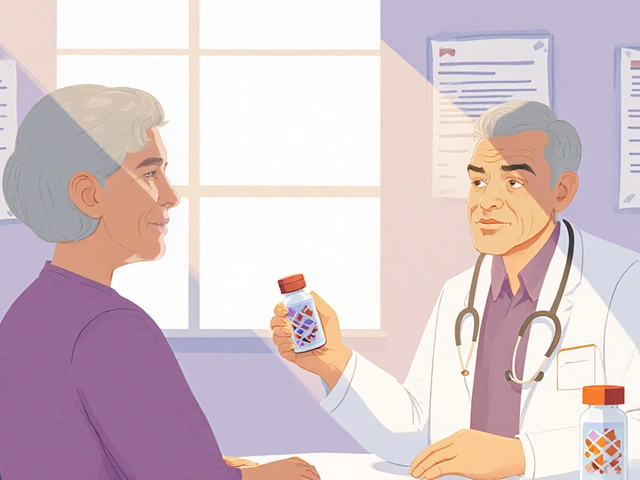Medication Tips: Safe Online Pharmacy & Practical Health Advice
Buying meds online or managing side effects shouldn’t feel like guesswork. A few clear checks and daily habits will keep you safer and save money. Below are practical tips you can use right away—whether you’re ordering glyburide, looking for terbinafine, or dealing with medication-related side effects like hair loss or dehydration.
Online pharmacy safety checklist
Only use pharmacies that show a real business address and a licensed pharmacist contact. Look for SSL (https://) on the checkout page and trust seals from recognized regulators. If a site sells prescription-only drugs without asking for a prescription, walk away. Compare prices across several sites—extreme discounts often mean counterfeit or expired products.
Read recent customer reviews and check independent watchdog sites. When you receive the medication, check packaging for tampering, correct labels, batch numbers, and expiration dates. If pills look different from what your doctor prescribed, contact your pharmacist. Keep your receipts and order numbers in case you need to report a problem.
Practical tips for common concerns
Managing side effects: Track symptoms in a simple daily note. If a drug causes dizziness, rash, or breathing issues, stop taking it and call your provider right away. For common issues like mild nausea or headaches, small changes—take the pill with food, split doses as advised, or adjust timing—often help. Always confirm with your prescriber before changing doses.
Hydration and electrolytes: If you take diuretics or medicines like spironolactone, watch your fluids and potassium. Too much alcohol and salty cocktails can push you off balance. Sip water regularly during the day and consider electrolyte drinks if you sweat a lot or have vomiting. Ask your doctor about simple blood tests to check potassium and kidney function.
Antibiotic and alternative choices: If a common antibiotic like amoxicillin doesn’t suit you, doctors often recommend culture-guided alternatives. Don’t use leftover antibiotics or share them—this fuels resistance. For infections treated with levofloxacin or Augmentin, your clinician can pick an alternative with fewer side effects based on the infection type and allergies.
Hair loss from medications: Drug-induced hair thinning is often reversible. Try dermatologist-backed options like topical minoxidil, nutrition checks (iron, vitamin D), and discussing PRP or other treatments with a specialist. If RA drugs or DMARDs are the cause, talk to your rheumatologist about dose adjustments or switching drugs—don’t stop on your own.
Pet care and small worries: For odd things like hiccups in pets, note frequency and behavior changes. Most hiccups in dogs and cats are harmless, but persistent episodes or other symptoms should prompt a vet visit.
Final quick wins: keep a single, updated list of all meds and dosages; store medicines in a cool, dry place; set phone reminders to take meds; and ask your provider for written instructions if anything’s unclear. Small steps make a big difference in safety and outcomes.
In my latest blog post, I discuss the challenges people with Porphyria face when trying to stay active and share some helpful tips for exercising safely. I emphasize the importance of consulting with a medical professional before starting any exercise routine, as well as listening to your body and adjusting your workouts accordingly. Additionally, I offer suggestions for low-impact exercises such as swimming and yoga that can be beneficial for those with Porphyria. Furthermore, I stress the need for staying hydrated and maintaining a balanced diet to support overall health. Lastly, I encourage readers to find a supportive community and stay motivated in their journey to stay active and healthy.
View Details

